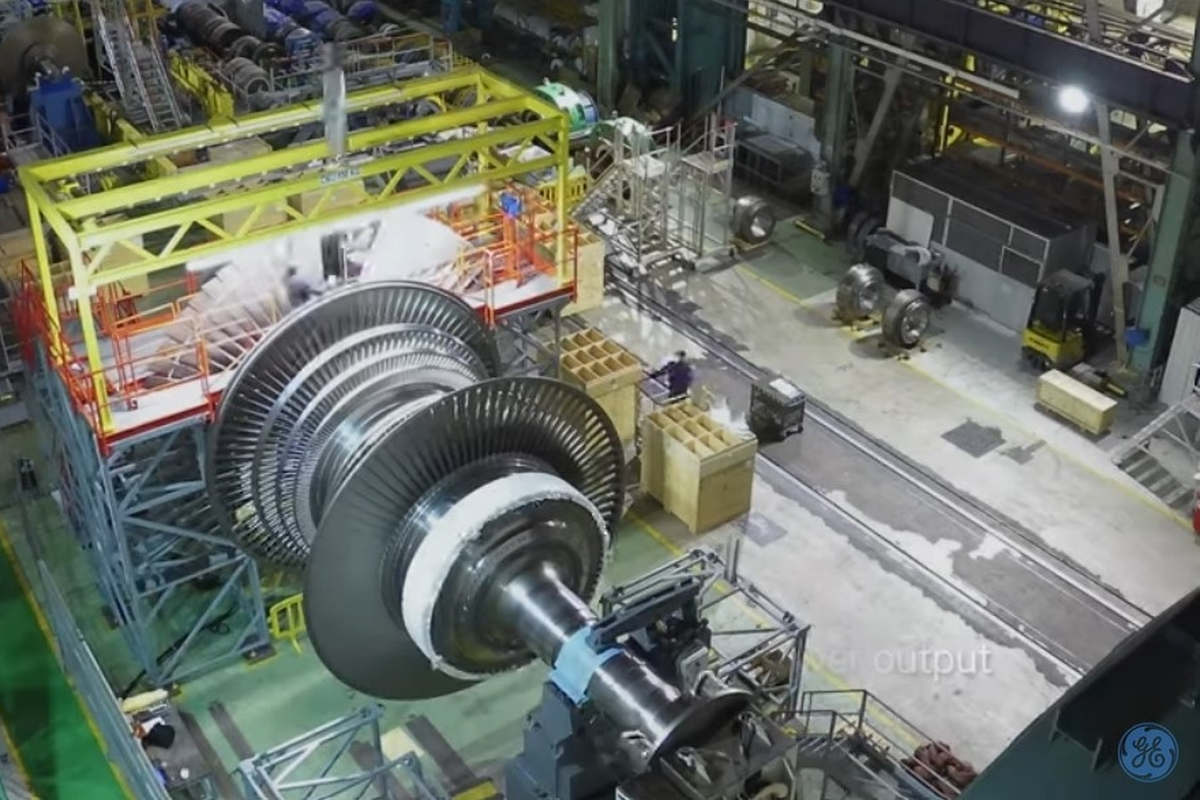The World Nuclear Industry Report 2022 highlights the role of Russia as a uranium producer and leader in the international market for new nuclear power plant construction.
Russia’s invasion of Ukraine has shone a spotlight on the operation of commercial nuclear power plants during an all-out war, the bombing of commercial reactor sites, the occupation by enemy forces of nuclear facilities and the operation of reactors under physical threat. No nuclear power plant in the world was designed to operate under these conditions, observes The World Nuclear Industrie stutus report 2022 (WNISR 2022).
Half of the world’s natural uranium
The report points out that while the war in Ukraine has exposed Europe’s dependence on fossil fuels from Russia, little attention has been paid to the extent of interdependencies with the Russian nuclear sector. About half of the natural uranium imported by the European Union (EU) in 2020 was purchased from Russia, as well as from Kazakhstan and Uzbekistan, two countries of the former Soviet Union.
Five days after the Russian invasion of Ukraine began and one day after the European Union closed its airspace to all Russian aircraft, the Slovak government granted special permission to a Russian aircraft to bring fresh nuclear fuel assemblies into the country. Slovakia operates six Russian-designed VVER reactors, which by 2021 produced more than half of its electricity. Two additional units, under construction in Mochovce since 1985, are expected to start up soon, using Russian fuel.
The shipment to Slovakia is not the only one that has received exceptional flight authorization for Russian nuclear fuel. In addition to Slovakia, Bulgaria, the Czech Republic, Finland and Hungary operate VVERs and rely on Russian fuel. Westinghouse, the only other manufacturer, has so far supplied VVER fuel mainly to Ukraine. Although Ukraine began to move away from Russian fuel several years ago, it has only converted about half of its 15 reactors to alternative fuel. Other European VVER operators have expressed interest in this option in the past, and that interest has clearly increased in the past six months.
The essential role of Rosatom
There are many other services provided by the Russian nuclear industry, which also conducts joint activities with several EU entities. Rosatom has been cooperating with the French company EDF for 30 years in many areas.
In 2009, Rosatom acquired the former German nuclear fuel fabrication company Nukem, which now specializes in decommissioning. In December 2021, Rosatom and EDF subsidiary Framatome signed a “long-term cooperation agreement,” and in early 2022, Rosatom subsidiary TVEL was poised to acquire a stake in Framatome’s fuel fabrication plant in Lingen, Germany.
Rosatom was also to acquire a 20% stake in GEAST, Arabelle’s turbine manufacturer. These turbines produce electricity for Rosatom’s European Pressurized Water Reactors (EPR) and VVER plants. With Russia dominating the narrow international market for nuclear new builds, sanctions against Rosatom would deprive GEAST, an EDF subsidiary, of its main customer.
The delicate sanctions against Russia
The European Parliament has explicitly called for the inclusion of the nuclear sector in the sanctions against Russia. Do these commercial interdependencies explain why this call was not followed up?
The Russian military occupation of the two nuclear sites, Chernobyl and Zaporizhizhia, and the involvement of Rosatom personnel in the forced operation of the facilities by Ukrainian personnel raises questions about the relationship of commercial companies, both public and private, with the Russian state enterprise.
It also raises questions about the role of the International Atomic Energy Agency (IAEA). The Agency’s director general, Rafael Mariano Grossi, has visited Ukrainian nuclear sites and confirmed Rosatom’s presence in Zaporizhizha. While Grossi is pushing for the creation of a security zone around nuclear facilities, Mikhail Shudakov, a former longtime head of Rosatom Enterprises, remains its deputy director general and head of the IAEA’s Department of Nuclear Energy.
With the help of the IAEA
The IAEA General Assembly began on September 26, 2022. It will be an important challenge to clarify what are and will be the basic conditions for technical assistance in the future. Today, Russia is the country that implements the most new power plant construction projects in the world, many, if not most, with the assistance of the IAEA. It is of the utmost importance that the IAEA clarify the conditions under which Russia, the state-owned Rosatom and its many subsidiaries can be considered a responsible partner in nuclear cooperation in the future.

